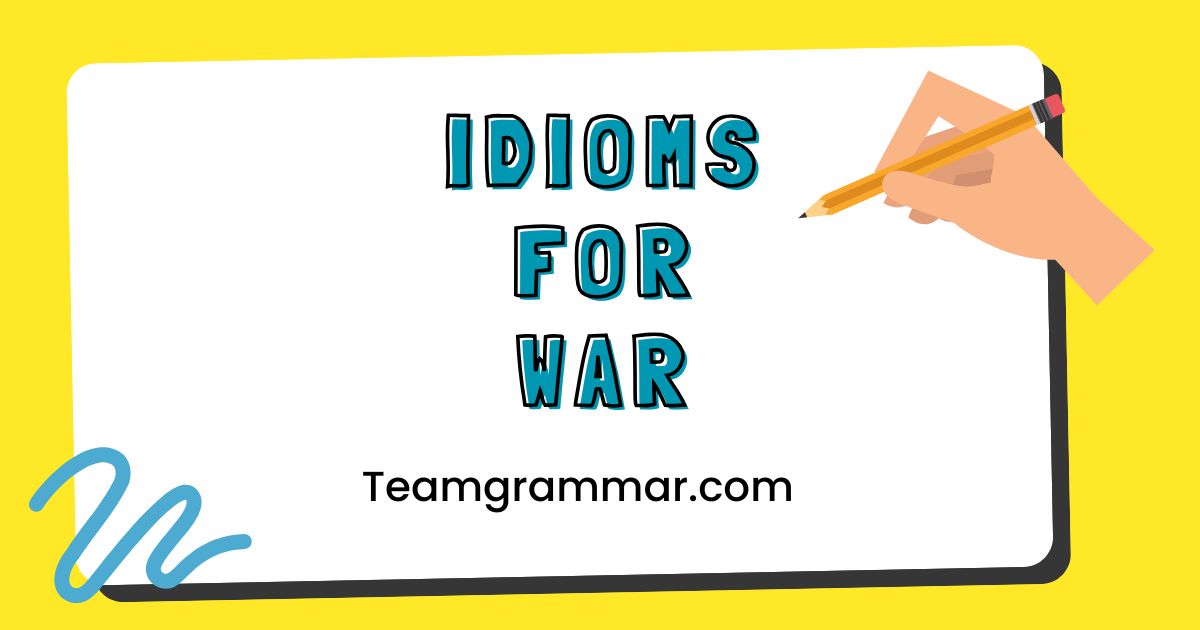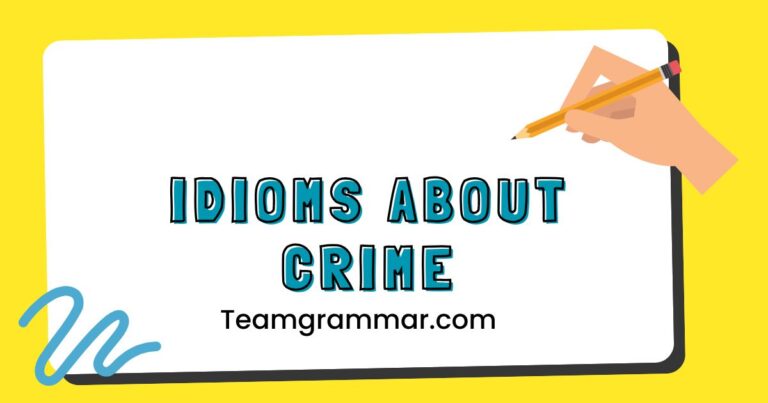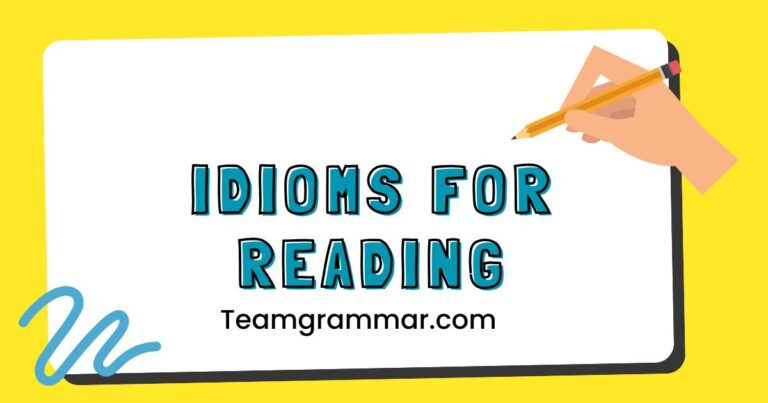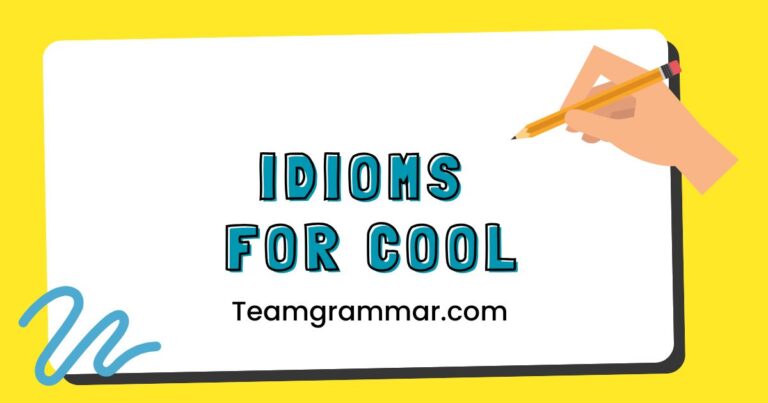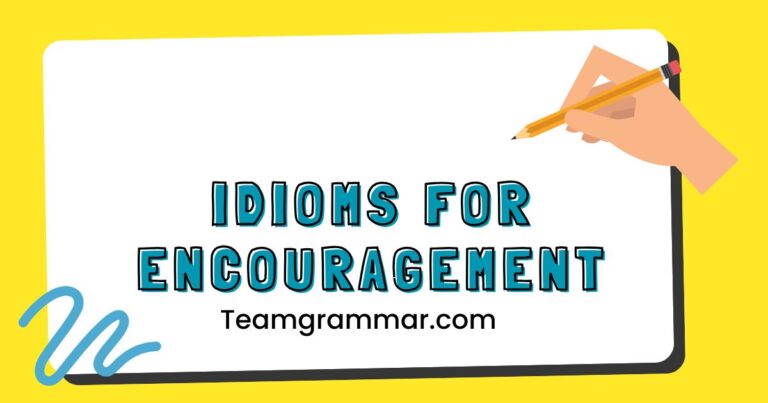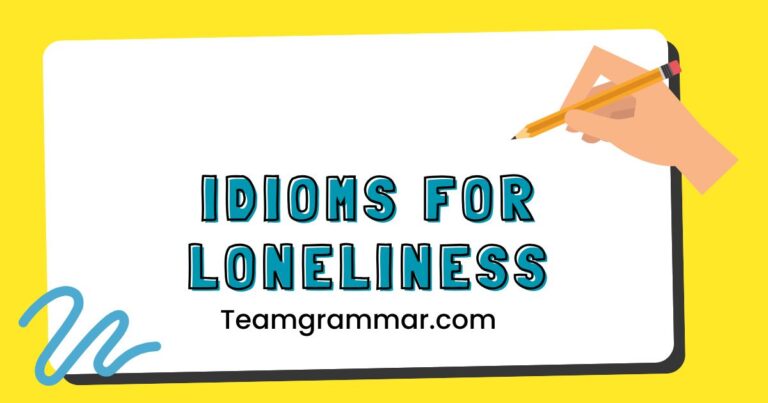30+ Idioms for War: Understanding Figurative Language of Conflict
Idioms are an integral part of the English language, adding color and depth to communication. Among the most vivid and impactful are those related to war.
Understanding these idioms provides crucial insight into how we conceptualize conflict and its effects, enriching both comprehension and expression. This article will explore common war-related idioms, their meanings, origins, and usage, benefiting English language learners, writers, and anyone interested in the nuances of the English language.
Mastering idioms related to war not only improves your understanding of the English language but also enhances your ability to communicate effectively in various contexts, from casual conversations to formal writing. These idioms are frequently used in literature, journalism, and everyday speech, making their comprehension essential for anyone seeking fluency in English.
Table of Contents
- Introduction
- Definition of War Idioms
- Structural Breakdown
- Types and Categories of War Idioms
- Examples of War Idioms
- Usage Rules
- Common Mistakes
- Practice Exercises
- Advanced Topics
- FAQ
- Conclusion
Definition of War Idioms
War idioms are figurative expressions that draw parallels between conflict and other aspects of life. They leverage the imagery and connotations of war to describe situations involving competition, struggle, or intense disagreement.
These idioms often employ vivid metaphors that evoke the intensity, risk, and consequences associated with warfare.
An idiom, by definition, is a phrase or expression whose meaning cannot be understood from the literal meanings of its individual words. Instead, the phrase has a figurative meaning that is culturally understood.
War idioms are a subset of idioms that use the vocabulary and imagery of war to describe non-military situations.
The function of war idioms is to add emphasis and color to language, making it more expressive and engaging. They allow speakers and writers to convey complex ideas and emotions succinctly.
War idioms are commonly used in politics, business, sports, and personal relationships to describe situations of competition, conflict, or adversity.
Structural Breakdown
War idioms, like all idioms, do not adhere to standard grammatical rules in terms of literal meaning. Their structure relies on the consistent use and cultural understanding of the phrase as a whole.
The power of war idioms lies in their ability to evoke strong images and emotions associated with conflict, even when used in non-military contexts.
The structure of a war idiom typically includes a verb, noun, or adjective related to war, such as “battle,” “fight,” “attack,” or “defend.” These words are combined with other elements to create a figurative meaning. For example, “fight a losing battle” uses the verb “fight” and the noun “battle” to describe a situation where someone is struggling against overwhelming odds.
The effectiveness of war idioms is enhanced by their ability to tap into shared cultural experiences and understandings of war. These idioms often carry emotional weight, conveying a sense of urgency, risk, or determination.
Consequently, they are frequently used to add impact to communication and to emphasize the significance of a particular situation.
Types and Categories of War Idioms
War idioms can be categorized based on the aspects of war they represent. Here are some common categories:
Offensive Idioms
These idioms describe aggressive actions or initiating conflict. They often involve attacking, confronting, or challenging someone or something.
Defensive Idioms
Defensive idioms focus on protecting oneself or others from attack. They involve strategies for resisting, guarding, or shielding against threats.
Strategic Idioms
These idioms relate to planning, maneuvering, and making calculated decisions to achieve a specific goal. They involve tactics, strategies, and long-term planning.
Casualty Idioms
These idioms depict the negative consequences or losses resulting from conflict. They often involve damage, injury, or defeat.
Truce and Resolution Idioms
These idioms describe the ending of conflict or the establishment of peace. They involve negotiation, compromise, and reconciliation.
Examples of War Idioms
Below are several examples of war idioms, categorized by the type of action or situation they describe. Each idiom is presented with its meaning and example sentences to illustrate its usage.
Offensive Idioms Examples
These idioms are used to describe situations where someone is taking an aggressive or confrontational stance. They convey a sense of initiating conflict or challenging an opponent.
The following table provides examples of offensive idioms, their meanings, and example sentences.
| Idiom | Meaning | Example Sentence |
|---|---|---|
| Open fire | To begin shooting or attacking, either literally or figuratively. | The CEO opened fire on the proposed budget cuts during the meeting. |
| Take the offensive | To start an attack or aggressive action. | After suffering several setbacks, the company decided to take the offensive with a new marketing campaign. |
| On the warpath | In a state of anger and ready to fight or argue. | When he found out about the mistake, he was on the warpath, looking for someone to blame. |
| Draw first blood | To be the first to inflict damage or score a point in a competition. | The new product launch allowed them to draw first blood in the market. |
| Go for the jugular | To attack someone’s weakest point with the intention of causing maximum damage. | The lawyer went for the jugular during the cross-examination, exposing the witness’s lies. |
| Spearhead an attack | To lead an attack or initiative. | She was chosen to spearhead the attack on the new market segment. |
| Launch a campaign | To start a series of actions to achieve a specific goal. | The organization launched a campaign to raise awareness about climate change. |
| Take no prisoners | To be ruthless and uncompromising in achieving a goal. | In the negotiations, she took no prisoners, securing the best possible deal for her client. |
| Blitz | To attack rapidly and intensely. | The team blitzed their opponents with a series of quick goals. |
| Mount an offensive | To organize and launch an attack or aggressive action. | The activists mounted an offensive against the company’s environmental policies. |
| Lay siege to | To surround and blockade in an attempt to force surrender. | The protesters laid siege to the government building, demanding reforms. |
| Bombard with questions | To ask someone a lot of questions quickly and aggressively. | The reporters bombarded the spokesperson with questions after the announcement. |
| Onslaught | A fierce or destructive attack. | The company faced an onslaught of criticism after the product recall. |
| Lead the charge | To be the first to attack or take action. | He led the charge in advocating for the new policy. |
| Go on the rampage | To behave in a wild and destructive way. | The disgruntled employee went on the rampage after being fired. |
| Wage war on | To engage in a serious and sustained conflict against something. | The government is waging war on poverty. |
| Take aim at | To direct criticism or attacks towards someone or something. | The politician took aim at his opponent’s economic policies. |
| Go after someone | To pursue or attack someone aggressively. | The police are going after the criminals involved in the robbery. |
| Storm the castle | To aggressively overcome obstacles or resistance. | The entrepreneurs stormed the castle of traditional business models with their innovative startup. |
| Unleash fury | To release intense anger or aggression. | The hurricane unleashed its fury on the coastal towns. |
Defensive Idioms Examples
Defensive idioms are used to describe situations where someone is protecting themselves or others from attack. They convey a sense of resistance, safeguarding, or shielding against threats.
The following table provides examples of defensive idioms, their meanings, and example sentences.
| Idiom | Meaning | Example Sentence |
|---|---|---|
| Hold one’s ground | To maintain one’s position or opinion despite opposition. | The lawyer held his ground despite the prosecutor’s aggressive questioning. |
| Defend to the last man | To protect something with extreme determination until everyone is defeated. | The team vowed to defend the project to the last man, regardless of the challenges. |
| Circle the wagons | To gather together for defense or protection. | When the company faced a crisis, they circled the wagons and worked together to overcome it. |
| Shore up defenses | To strengthen protective measures. | After the security breach, the company decided to shore up its defenses against cyber attacks. |
| Stand one’s ground | To refuse to be pushed over or intimidated. | She stood her ground and refused to back down from her principles. |
| Shield from | To protect someone or something from harm. | The parents tried to shield their children from the negative news. |
| Dig in one’s heels | To resist stubbornly. | The government dug in its heels and refused to negotiate with the rebels. |
| Batten down the hatches | To prepare for a difficult or dangerous situation. | With the storm approaching, the residents battened down the hatches and prepared for the worst. |
| Fortify | To strengthen or protect something. | The country decided to fortify its borders against potential threats. |
| Keep at bay | To prevent someone or something from approaching or affecting you. | The new regulations helped keep the pollution at bay. |
| Take cover | To find shelter from attack or danger. | The pedestrians took cover under the awning when the rain started. |
| Hold the line | To maintain a position or standard against opposition. | The employees are trying to hold the line against further budget cuts. |
| Build a wall | To create a barrier, either physical or metaphorical, to protect against something. | She built a wall around herself after the betrayal. |
| In the trenches | Engaged in the difficult, day-to-day work of a project or struggle. | The engineers are in the trenches, working hard to fix the software bug. |
| Defend to the death | To defend something until one’s own death. | He vowed to defend his family’s honor to the death. |
| Guard with one’s life | To protect something as if one’s life depended on it. | She guarded her grandmother’s necklace with her life. |
| Shield from harm | To protect someone from danger or injury. | The company tried to shield its employees from harm during the restructuring. |
| Parry the blow | To deflect or avoid a negative impact. | The politician parried the blow of the scandal with a well-crafted statement. |
| Withstand the assault | To resist and survive an attack or challenge. | The old building withstood the assault of the hurricane. |
| Brace oneself | To prepare oneself mentally or physically for something unpleasant. | They braced themselves for the upcoming criticism. |
Strategic Idioms Examples
Strategic idioms are used to describe situations where planning, maneuvering, and calculated decisions are involved to achieve a specific goal. They convey a sense of tactics, strategies, and long-term planning.
The following table provides examples of strategic idioms, their meanings, and example sentences.
| Idiom | Meaning | Example Sentence |
|---|---|---|
| Play one’s cards right | To use one’s opportunities skillfully to achieve a desired outcome. | If you play your cards right, you could get a promotion. |
| The lay of the land | The current situation or circumstances. | Before making a decision, it’s important to understand the lay of the land. |
| Change tactics | To alter one’s strategy or approach. | When the initial plan failed, they decided to change tactics. |
| Cover all the bases | To make sure that all possibilities have been considered and prepared for. | We need to cover all the bases to ensure the project’s success. |
| Call the shots | To be in control and make the important decisions. | As the CEO, she calls the shots in the company. |
| Plan of attack | A detailed strategy for achieving a goal. | They developed a comprehensive plan of attack to tackle the market challenges. |
| Behind enemy lines | In a dangerous or hostile environment. | Working undercover, he felt like he was behind enemy lines. |
| Take a calculated risk | To make a decision after carefully considering the possible outcomes. | The company took a calculated risk by investing in the new technology. |
| Scouting party | A group sent to gather information or assess a situation. | The team sent a scouting party to evaluate the potential market opportunities. |
| Hold all the aces | To have all the advantages in a situation. | In the negotiation, he held all the aces and secured a favorable deal. |
| Assess the situation | To evaluate the circumstances to make informed decisions. | Before reacting, it’s important to assess the situation carefully. |
| Map out a strategy | To create a detailed plan of action. | The consultants helped the company map out a strategy for growth. |
| The upper hand | An advantage or position of control. | Having more resources gave them the upper hand in the competition. |
| Gain ground | To make progress or advance towards a goal. | The company is gaining ground in the market with its innovative products. |
| Outmaneuver | To gain an advantage over someone by using clever tactics. | The chess player outmaneuvered his opponent with a brilliant move. |
| Secret weapon | A hidden advantage that can be used to gain an edge. | Her creativity was her secret weapon in solving complex problems. |
| Play the long game | To focus on long-term goals rather than immediate gains. | They are playing the long game by investing in research and development. |
| Read the enemy | To understand the intentions and strategies of an opponent. | The negotiator was skilled at reading the enemy and anticipating their moves. |
| Cut one’s losses | To stop investing in something that is failing to prevent further losses. | The investor decided to cut his losses and sell the failing stock. |
| Keep one’s options open | To avoid committing to a particular course of action. | She decided to keep her options open before accepting the job offer. |
Casualty Idioms Examples
Casualty idioms are used to depict the negative consequences or losses resulting from conflict. They convey a sense of damage, injury, or defeat.
The following table provides examples of casualty idioms, their meanings, and example sentences.
| Idiom | Meaning | Example Sentence |
|---|---|---|
| Bite the bullet | To face a difficult or unpleasant situation with courage. | I had to bite the bullet and accept the pay cut. |
| Fall by the wayside | To fail to finish something or be forgotten. | Many small businesses fall by the wayside during an economic downturn. |
| Collateral damage | Unintended harm or damage that occurs as a result of an action. | The economic crisis caused significant collateral damage to small businesses. |
| Lose ground | To lose progress or advantage. | The team started to lose ground after their star player was injured. |
| Down for the count | Defeated or unable to continue. | After the scandal, his political career was down for the count. |
| Take a beating | To suffer a severe defeat or setback. | The stock market took a beating during the financial crisis. |
| Lose the battle | To be defeated in a specific conflict or challenge. | They lost the battle to secure the contract, but they didn’t give up on their overall goals. |
| Take a hit | To experience a negative impact or loss. | The company’s profits took a hit due to the increased competition. |
| Go down in flames | To end in a spectacular and disastrous failure. | The project went down in flames after several critical errors. |
| Be on the ropes | To be in a difficult or precarious situation. | The company was on the ropes after losing its major client. |
| Wounded | Injured or harmed. | His pride was wounded by the criticism. |
| Suffer casualties | To experience losses or negative consequences. | The company suffered casualties in the form of employee layoffs. |
| Fall victim to | To be negatively affected by something. | Many people fell victim to the scam. |
| Hit hard | To affect someone or something severely. | The recession hit many families hard. |
| Pay the price | To suffer the consequences of one’s actions. | He had to pay the price for his mistakes. |
| Sink or swim | To succeed or fail entirely on one’s own efforts. | The new employees were left to sink or swim without proper training. |
| Lose face | To suffer a loss of respect or reputation. | The politician lost face after the scandal was revealed. |
| Blood, sweat, and tears | Great effort and hardship. | The project required blood, sweat, and tears to complete successfully. |
| Go to the wall | To be defeated or ruined. | Many businesses went to the wall during the economic crisis. |
| At a loss | Confused and uncertain about what to do. | She was at a loss after hearing the bad news. |
Truce and Resolution Idioms Examples
Truce and resolution idioms are used to describe the ending of conflict or the establishment of peace. They convey a sense of negotiation, compromise, and reconciliation.
The following table provides examples of truce and resolution idioms, their meanings, and example sentences.
| Idiom | Meaning | Example Sentence |
|---|---|---|
| Call a truce | To agree to stop fighting or arguing for a period of time. | The two companies decided to call a truce and negotiate a settlement. |
| Bury the hatchet | To make peace and forget past grievances. | After years of conflict, they decided to bury the hatchet and become friends. |
| Extend an olive branch | To offer peace or reconciliation. | The company extended an olive branch to the striking workers by offering a new contract. |
| Meet halfway | To compromise and make concessions. | The two parties were willing to meet halfway to reach an agreement. |
| Cry uncle | To admit defeat. | After hours of negotiation, the opponent finally cried uncle. |
| Settle the score | To get revenge or resolve a conflict. | They agreed to settle the score through arbitration. |
| Turn the other cheek | To choose not to retaliate when someone harms you. | Instead of arguing, she decided to turn the other cheek. |
| Peace offering | A gesture or gift offered to restore peace or harmony. | He brought her flowers as a peace offering after their argument. |
| Reach a consensus | To come to a general agreement. | The committee was able to reach a consensus on the new policy. |
| Iron out the differences | To resolve disagreements or problems. | The negotiators worked hard to iron out the differences between the two sides. |
| Lay down arms | To surrender or stop fighting. | The rebels agreed to lay down arms and negotiate with the government. |
| Call off the dogs | To stop pursuing or attacking someone. | The CEO decided to call off the dogs after the negative publicity. |
| Declare a ceasefire | To announce a temporary suspension of hostilities. | The warring factions declared a ceasefire to allow for humanitarian aid. |
| Shake hands | To make peace or finalize an agreement. | The two leaders shook hands after signing the treaty. |
| Build bridges | To establish connections or relationships. | The organization aims to build bridges between different communities. |
| Make amends | To do something to correct a mistake or wrong. | He tried to make amends for his past actions. |
| Come to terms | To reach an agreement or understanding. | The company and the union came to terms after weeks of negotiations. |
| Turn over a new leaf | To start behaving in a better way. | He decided to turn over a new leaf and focus on his health. |
| Patch things up | To resolve a disagreement or repair a relationship. | They managed to patch things up after the argument. |
| Let bygones be bygones | To forgive and forget past grievances. | They decided to let bygones be bygones and start fresh. |
Usage Rules
War idioms should be used appropriately depending on the context and audience. Using them in a lighthearted or humorous manner in serious situations can be seen as insensitive.
It is important to understand the specific meaning and connotation of each idiom before using it.
Consider the formality of the situation. In formal writing or professional settings, it’s often better to use more direct and literal language.
However, in informal settings, idioms can add color and personality to your communication.
Be mindful of cultural differences. Some idioms may not translate well or have the same meaning in different cultures.
If you are communicating with people from diverse backgrounds, it’s important to be aware of potential misunderstandings.
Common Mistakes
One common mistake is using an idiom in the wrong context. For example, using an offensive idiom in a situation that requires sensitivity can be inappropriate.
Another mistake is misunderstanding the meaning of an idiom. Because idioms have figurative meanings, it’s important to understand the intended message before using them.
Here are some examples of common mistakes and their corrections:
| Incorrect | Correct | Explanation |
|---|---|---|
| He opened fire with compliments. | He lavished compliments on her. | “Open fire” implies aggression, which is inappropriate for compliments. |
| She took the offensive with kindness. | She approached the situation with kindness. | “Take the offensive” implies aggression, which contradicts the intent of kindness. |
| They buried the hatchet with more conflict. | They tried to bury the hatchet, but the conflict continued. | “Bury the hatchet” means to make peace, so it cannot be done with more conflict. |
Practice Exercises
Test your understanding of war idioms with the following exercises. Choose the correct idiom to complete each sentence.
- After years of disagreements, they decided to ________ and become friends.
- (a) open fire
- (b) bury the hatchet
- (c) hold their ground
Answer: (b) bury the hatchet
- The company had to ________ after the scandal.
- (a) bite the bullet
- (b) extend an olive branch
- (c) change tactics
Answer: (a) bite the bullet
- The negotiator was known for his ability to ________ in any situation.
- (a) call the shots
- (b) take a beating
- (c) hold his ground
Answer: (c) hold his ground
- To succeed, you need to ________ skillfully.
- (a) play your cards right
- (b) lose ground
- (c) suffer casualties
Answer: (a) play your cards right
- The politician tried to ________ to the striking workers.
- (a) extend an olive branch
- (b) go down in flames
- (c) take no prisoners
Answer: (a) extend an olive branch
- The team decided to ________ and start attacking.
- (a) take the offensive
- (b) lay down arms
- (c) circle the wagons
Answer: (a) take the offensive
- She had to ________ and accept the criticism.
- (a) cry uncle
- (b) bite the bullet
- (c) settle the score
Answer: (b) bite the bullet
- The company needed to ________ after the security breach.
- (a) shore up its defenses
- (b) go on the rampage
- (c) take a calculated risk
Answer: (a) shore up its defenses
- The two sides agreed to ________ and begin negotiations.
- (a) call a truce
- (b) mount an offensive
- (c) take aim at
Answer: (a) call a truce
- The project ________ after several critical errors.
- (a) went down in flames
- (b) kept at bay
- (c) played the long game
Answer: (a) went down in flames
Exercise 2: Fill in the Blanks
Complete the following sentences using appropriate war idioms.
- Before launching the new product, we need to ________ and make sure we are prepared.
- After losing the first game, the team decided to ________ and try a different approach.
- The government is ________ on poverty to improve the lives of its citizens.
- During the economic downturn, many small businesses ________.
- The negotiator tried to ________ by offering a compromise.
- He was ________ after the embarrassing defeat.
- The company decided to ________ against cyber threats.
- The CEO always ________ in the company.
- After a long and hard struggle, they finally ________.
- The politician ________ at his opponent’s policies during the debate.
Answers:
- cover all the bases
- change tactics
- waging war
- went to the wall
- extend an olive branch
- down for the count
- shore up its defenses
- calls the shots
- reached a consensus
- took aim
Advanced Topics
For advanced learners, exploring the historical and cultural context of war idioms can provide deeper insights. Researching the origins of these idioms can reveal interesting connections between
Advanced Topics
For advanced learners, exploring the historical and cultural context of war idioms can provide deeper insights. Researching the origins of these idioms can reveal interesting connections between historical events and linguistic expressions.
Consider the use of war idioms in literature and rhetoric. Analyzing how authors and speakers employ these idioms can enhance your understanding of their persuasive and expressive power.
Another advanced topic is the evolution of war idioms over time. Some idioms may have changed in meaning or usage, reflecting shifts in cultural attitudes and historical experiences.
FAQ
Conclusion
War idioms are a powerful and expressive part of the English language. They provide a vivid way to describe conflict, competition, and adversity in various contexts.
By understanding the meanings, origins, and usage rules of these idioms, you can enhance your communication skills and gain a deeper appreciation for the nuances of the English language.
Mastering war idioms not only improves your language proficiency but also allows you to connect with others on a deeper level by tapping into shared cultural understandings of conflict and its impact. Continue to explore and practice using these idioms to enrich your vocabulary and communication style.

